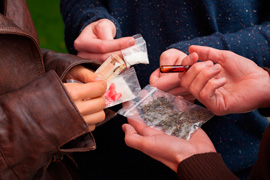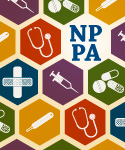March 3rd, 2017
Asking Pediatric Patients About Drug Use
Emily F. Moore, RN, MSN, CPNP-PC, CCRN

Emily F. Moore, RN, MSN, CPNP-PC, CCRN practices pediatric cardiovascular care across the Pacific Northwest.
I remember the very first time I obtained an adolescent HEADSSS assessment in graduate school (HEADSSS being the acronym for Home environment, Education and employment, Eating, peer-related Activities, Drugs, Sexuality, Suicide/depression, and Safety from injury and violence). Walking into my patient’s room, I was likely more nervous than my patient was. I recall telling my preceptor that I doubted anyone would be honest in answering the questions and him saying, “It’s the way you approach the subject.” I still didn’t believe him.
So, imagine my complete surprise when the patient answered my questions with no hesitation. I recall sitting there in utter shock as he riddled me with stories of various drugs he had either taken, snorted, smoked, or injected. My first thought was how to document all of it, rather than how to help him. The other shocking thing was that his mother sat right next to him and didn’t even blink an eye as he told his stories of past drug use.
I realized two things in that moment — first, that my white coat possessed a certain power, and second, that teenagers will really tell you anything if you ask the right questions. Knowing this, I wonder, how do we pediatric clinicians most effectively use this power to better educate our patients and prevent them from using drugs?
One decision we have to make is when to start educating and talking with a patient about drug use. I strongly believe in making it routine to discuss this and other behaviors beginning in the pre-teen years, with parents and teens together, and then again once the parents leave the room. Set an expectation by introducing the HEADSSS assessment early. At this time, an atmosphere of trust and confidentiality can be established, allowing embarrassing topics to be discussed. As the patient gets older, this is already an established part of the visit and will not surprise either the parent or adolescent. The provider can use this time to educate about the risks and dangers involved with opioid use, among other perils adolescents face.
Confidentiality is crucial to emphasize with patients and, in my experience, yields results. I distinctly remember prepping a college-age student for surgery. With her parents in the room, I asked a number of HEADSSS-related questions. Each response seemed perfectly rehearsed; she did not experiment with drugs or alcohol and did not have a boyfriend. I asked her parents to leave the room. They argued, saying they needed to be present. After standing firm and insisting that they leave, I learned a number of things related to drug and alcohol use, boyfriends, and birth control use. This patient stressed that her parents could not find out. She was so adamant about this that she even asked to have her birth control held while in the hospital so that her parents wouldn’t find out. The reality of her situation is all too common.
This brings me to a few thoughts about our role as pediatric providers. Besides delivering anticipatory guidance and counseling against high-risk behaviors to the patient, we should encourage our patients’ parents to talk with their children about it, educating them about how important parental involvement is to preventing adolescent drug use. Beyond that, as a large percentage of our nation’s youth interface with teachers, we should also be getting their input. On more than one occasion I have had a parent come to me concerned about their child’s behavior only to learn that at least one teacher has reported similar worries. As providers, should we be paying extra attention to these reports, even educating parents to be alerted to reports from school about their child’s behavior or academic performance worsening? I think so. This type of concern from a teacher, albeit third-party information, would immediately alert a PCP to assess behaviors, opening the door for treatment and referrals if appropriate.
In a world where opioid use has become an epidemic, I feel strongly that it is a fiduciary duty of mine, as a provider, to constantly be assessing, treating, and educating about the dangers of addiction. We may never understand the power of the white coat, but we can certainly use it to our advantage, providing anticipatory guidance to all patients and the key adults in their lives.




Thank you for this important reminder. It is also very important that when we screen for issues such as drug use we are prepared to treat what we find. For most PCPs this means reaching out and finding one provider in the area who has experience treating drug use/addiction and can provide further triage helping the patient with counseling and who provides MAT(medication assisted treatment) when appropriate. This is evidence based medicine to treat a chronic illness, just like we use medication to treat other chronic illnesses. As we are learning that addiction is not a moral failing, but a chronic illness(as stated by Surgeon general Vivek Murthy MD) it is important that we either further educate ourselves or have resources in place to refer our patients in need.
Dr Toney,
Thank you for your response. I could not agree with you more. I have seen the struggle of addiction fully consume and affect lives. It is an absolutely heartbreaking and debilitating disease.
I hope as more and more awareness is brought to this disease, more resources become available for treatment.
Emily